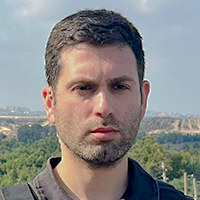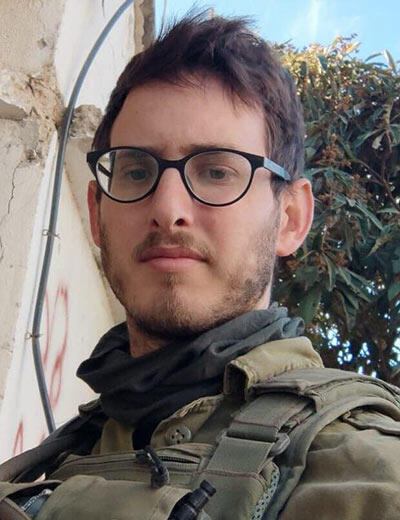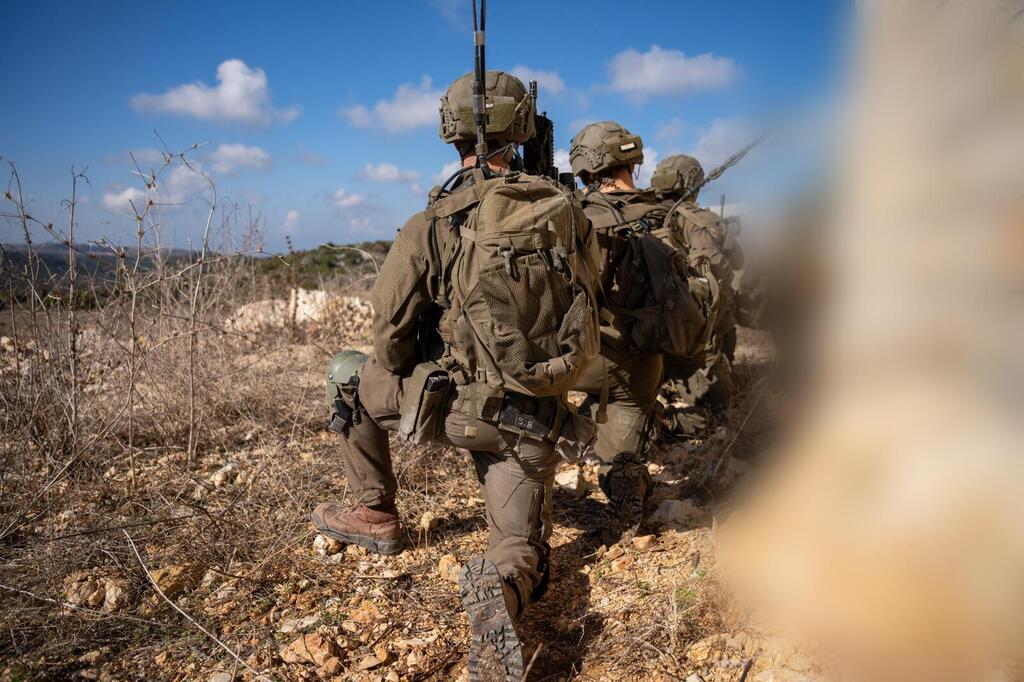Getting your Trinity Audio player ready...
The IDF reported Wednesday that Sergeant First Class (res.) Eitan Ben Ami, 22, from Jerusalem, a reservist in the Commando Brigade's elite Maglan Unit, was killed in a building collapse during operational activity in southern Lebanon.
Initial findings of an IDF probe into Ben Ami's death suggest that heavy winter weather caused the collapse of a building he was in, which had been targeted earlier in an airstrike as part of a preparatory operation.
The IDF has ruled out the possibility that the building’s collapse was caused by an explosion. The operation involved troops advancing through a built-up area, moving between buildings that had been struck in earlier airstrikes. Despite heavy rainfall in the region overnight, the military proceeded with the planned operation.
The military's death toll has reached 801 since the October 7 Hamas attack, with 273 reserve officers and soldiers losing their lives in the fighting. Forty-five servicemembers fell in Lebanon ground operations alone.
On Tuesday, the military reported that Sergeant First Class (res.) Omer Moshe Gaeldor, 30, a soldier from the Golani Brigade's 5111th Reconnaissance Battalion, from Jerusalem, was killed when a Hezbollah explosive drone struck an IDF unit operating in southern Lebanon.
Gaeldor is survived by his parents, Reaya and Oren, his wife, Adi, and their two young children, 3-year-old Neta and 8-month-old Aluma. He recovered from a severe illness in recent years and returned to active reserve duty.
Fighting in southern Lebanon continues alongside indirect cease-fire negotiations between Israel and Hezbollah, which have reached an advanced stage.
U.S. envoy Amos Hochstein arrived in Israel on Wednesday evening after visiting Beirut, where he received Hezbollah’s response to an American-brokered cease-fire proposal.
Hochstein described the negotiations as having made “positive progress” and is set to meet shortly with Strategic Affairs Minister Ron Dermer, a close confidant of Prime Minister Benjamin Netanyahu. Talks will continue Thursday, with Israel’s Security Cabinet convening in the evening for a briefing on the developments.
Senior diplomats said an agreement is “closer than ever,” with 90-95% of the details finalized, but warned that “the devil is in the details.” They noted that sensitive issues, including the establishment of a monitoring mechanism, remain unresolved.
“There appears to be shared interest in reaching a deal, but key decisions must still be made,” one diplomat said. The proposed monitoring framework would involve significant roles for the U.S., France and Britain, aimed at bolstering the Lebanese Armed Forces through arms and advisory support. Military cooperation from Jordan, Egypt and the United Arab Emirates is also expected to play a role in strengthening Lebanon’s military capabilities.
Hezbollah’s newly appointed leader, Naim Qassem, who assumed the role last month following the assassinations of Hassan Nasrallah and his original successor-designate Hashem Safieddine, delivered a speech Wednesday afternoon addressing ongoing negotiations with Israel.
Amid threats issued during his remarks, Qassem confirmed that Hezbollah had submitted its comments on the U.S.-brokered proposal and is now awaiting Israel’s response.
“The success of the negotiations depends on Israel’s response and Netanyahu’s seriousness,” Qassem said. He emphasized two key conditions, which he referred to as the “red lines” for the talks: a complete halt to what he called “Israeli aggression” and the preservation of Lebanon’s sovereignty—likely referencing disputes over Israel’s demand for freedom of action in the event of violations of the agreement.
Get the Ynetnews app on your smartphone: Google Play: https://bit.ly/4eJ37pE | Apple App Store: https://bit.ly/3ZL7iNv






